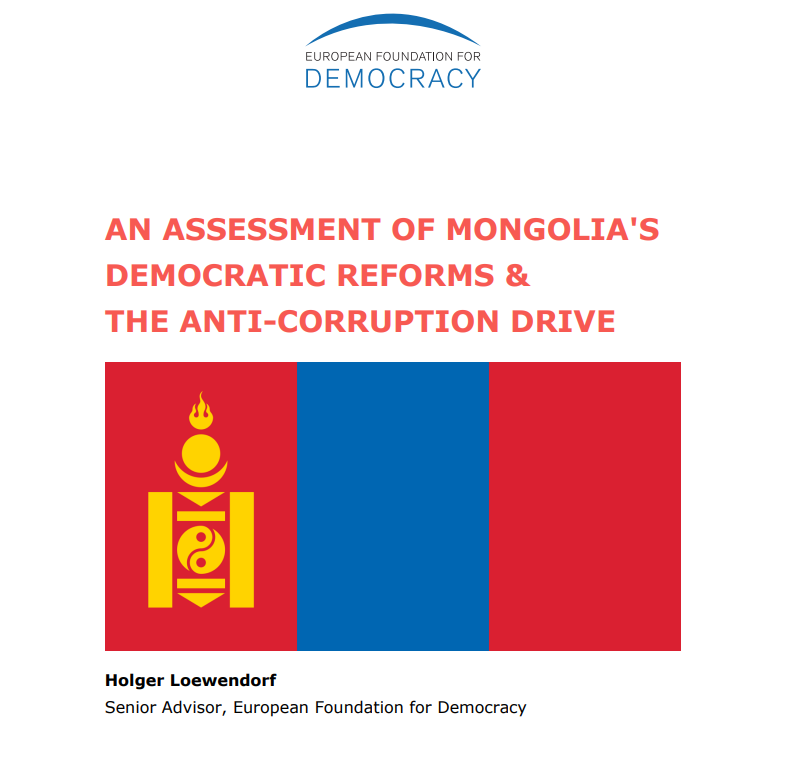Publication
An assessment of Mongolia’s democratic reforms & the anti-corruption drive
by Holger Loewendorf, Senior Advisor
The European Union aims to achieve “strategic autonomy” by reducing dependencies. In alignment with this objective, the European Commission unveiled an economic security strategy last week. This is not an easy goal to achieve. In the face of growing threats to Europe and democracies, the European Union needs reliable and democratic partners across the globe to fulfil its strategic autonomy aspirations.
This is where we should be talking about countries like Mongolia, given the shared values of democracy and fundamental rights. The country receives little attention in Brussels, but arguably deserves more as it takes important steps towards higher democratic standards. To put this in context, consider that Freedom House rates Mongolia as “free” with an overall score of 84 out of 100 in its latest global ranking. That is a better score than those of all current EU candidate countries (the highest of which is North Macedonia at 68) and several EU Member States, including Poland, Romania, Bulgaria and Hungary.
Enhanced cooperation among free and democratic countries is likely more crucial than ever. Many democracies confront diverse internal and external threats. Regrettably, it is uncommon today to observe countries actively working to enhance their democracies. Hence, it becomes essential to gain a better understanding of countries like Mongolia.
There is also an additional factor to consider, given Europe's pressing needs. The EU has identified specific raw materials as constraints on its strategic autonomy plans, and coincidentally, Mongolia possesses them. The country could potentially play a role in Europe's future plans.
The paper can be read here.

